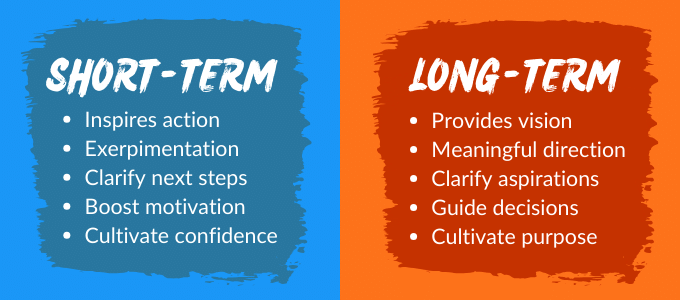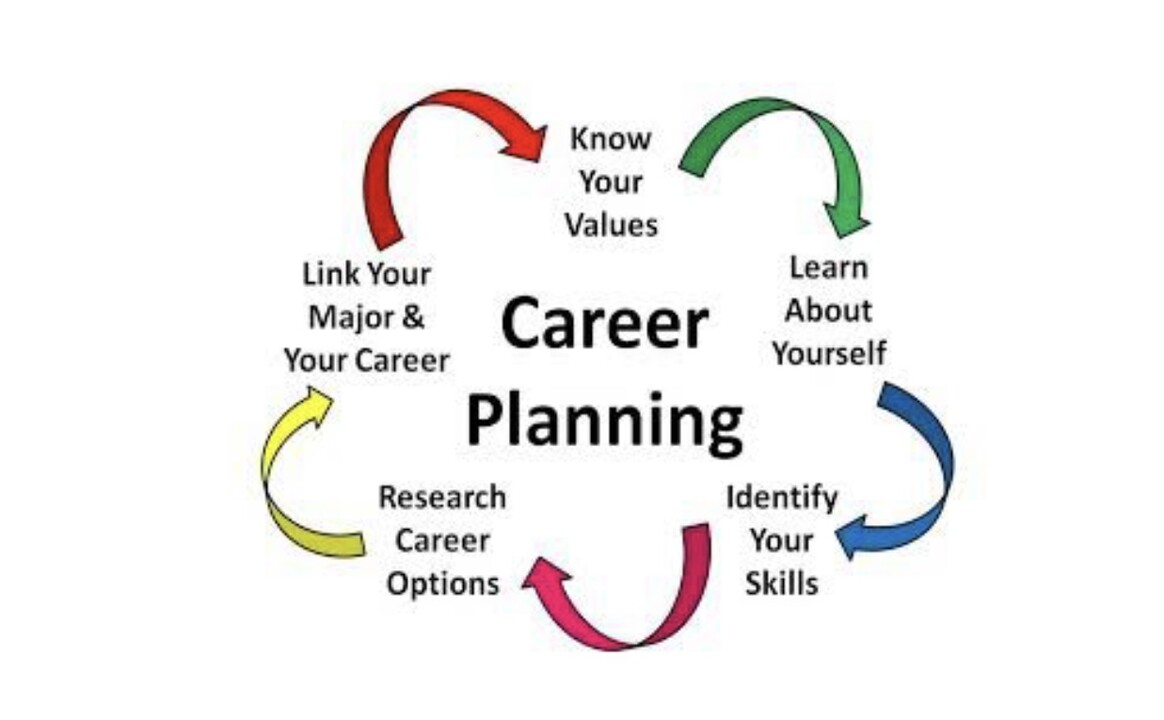5 Steps to Career Growth and Development
The career development process might sometimes be complex, regardless if you are just starting in your field or looking to make a change in your career. Whether you are a student, new to the workforce, or working your dream job, everyone can create an effective career development plan.

Setting specific career development goals can help get you through the next level of your career and show you how to get there. If you haven’t found your dream job yet, it’s now time to make a concrete plan of how you can get there.
In this article, we will define a career development and growth plan you can follow to make sure you are doing your best and following the right steps to your dream job.
The types of career development
When it comes to creating your ideal career development and growth plan, you need to know that there are two types of career development:
a. Formal career development: This includes short-term training programs, education, workshops, or seminars that help employees build skill sets for their current job and industry.
b. Informal career development: This includes building up your career through mentorship opportunities, networking events, online courses, internships, and more.
You need to explore both informal and formal methods to make sure you have updated the information that follows your career journey. Investing in formal career development, such as obtaining a DataCamp Data Scientist Career Certification, is pivotal for building proficiency in data science skills. By certifying your expertise through recognized certifications, you set a clear path to achieving advanced roles and greater opportunities
5 Steps to follow for creating your career development and growth plan
Creating the right career development and growth plan can give you a glimpse into the many career options you have to choose from and how they can develop into your dream job in the future. One way to get started is to find out more about the companies you're interested in. For example, IMDA careers page offers information about the opportunities in the tech industry and what's in store for you.
Conduct a self-assessment test
This test will show you what are your strengths and weaknesses; skills and interests; and values to help you understand what career path you need to follow. The most common types of self-assessment examples are:
a. Skills assessment: This allows you to identify your strengths and the gaps where you need development. Consider taking a leadership self-assessment test to find out more about your management skills.
b. Interest inventory: Interest inventory helps you understand your passions and explore your career paths.
c. Values assessment: Identify your values and priorities, which show your career satisfaction levels.
The self-assessment test will better help you understand your personal career needs and how they can successfully guide you throughout your career.
Use interview feedback
Interview feedback is a type of feedback that is offered to all candidates after they finish a job interview. Giving interview feedback is great for the brand’s reputation and for helping individuals grow in their careers and gain candidate experience. There are different types of feedback examples you might receive from employers. However, here are the most common types of examples that employers email candidates during the application process:

a. When the candidate doesn’t have enough experience: “We decided to take a tough decision on not moving forward with your application since you lack the necessary experience in the following field”.
b. When the candidate is overqualified: “We regret to inform you that you are too experienced for this role, and you’ll not stay motivated for too long.”
c. When your skills don’t match with their CV: “During the interview process, the candidate couldn’t demonstrate their skills as they stated on their CV”.
d. If they can do better in future interviews: “For future roles, you must consider making improvements to (insert missing information the candidate may have) so you can do better in your future endeavors.”
e. If you think they are a great fit: “We appreciate your ability to show how your values match the companies, and we think you are a great fit for the company.”
There are many different ways to provide effective interview feedback, but these are just a set of examples that you should generally apply to. While employers might state what kind of improvements you can make, or not, it’s important to always ask them what you can do better if you aren’t accepted.
Get good at writing internal cover letters
You may be wondering how important internal cover letters are. Well, a cover letter says a lot about you and it shows that you are looking to position yourself as a strong candidate who understands the requirements of a certain role you are interested in within the organization.
From the many professional cover letter examples for an internal position you can use, we came up with a perfect example that you take a close look at:
Jack Adams
Los Angeles, California
027054123078
Jackadams@gmail.com
Company XYZ
Dear hiring team,
My name is Jack Adams, and I am currently working as a content writer in the on-page content team at (the name of the company). I want to take this opportunity to apply as an on-page content manager that was advertised in the company’s newsletter. This role aligns with my career goals and allows me to grow both professionally and personally.
Seeing how the company wants to increase monthly traffic, my experience has been managing to personally increase organic traffic for (the company name) by 150% in the past four months.
My manager, (your manager’s name), is happy to talk to you about my work ethic and answer any questions you may have about me regarding this role.
I, once again, thank you for taking the time to read and review my application, and, I’d be more than happy to answer any questions you may have and any clarifications you need regarding me and the role.
Yours truthfully,
Jack Adams
There are many great cover letter examples you could use, but the one shown above portrays you sending a strong message to your current employer.
Statistics claim that 56% of employees won’t ever ask for a promotion. Writing an internal cover letter is important if you want to know about taking the right approach when asking for a promotion.
Define your long-term and short-term goals
While both long-term and short-term goals contribute to your end goal, you still need to be able to distinguish them. Whether you are just starting, changing careers, or moving up the hierarchy in your organization, there are plenty of different career development goals you can set.

Let’s take an example that we can use for setting long-term and short-term goals. We can start by putting it this way. Your long-term goal is to start your marketing agency, but you need to find the gap in knowing how the industry works. Here is a short example of how you can separate long-term and short-term goals in this case:
a. Long-term goal: Starting your marketing agency.
b. Short-term goal: Getting your first management position as a marketer.
Moreover, there are many other examples we can use, but the whole idea is to set your long-term goal first, and after, list your short-term ones.
Always measure your progress
Your career development plan won’t be as good if you don’t measure your progress. The implementation plan begins with the following:
a. Track milestones: Write down what you want to achieve at the end of the year, and where you’re at currently. Here, you need to start working your list through your education, experiences, and skills.
b. Stay on track: To hold yourself accountable, keep track of whether your current implementations are aligning with the ones you stated when you initially wrote down your goals. Check-in with your list frequently to make sure you are working towards your goals based on the timeline you’ve set for them.
c. Update goals according to your progress: Sometimes, unexpected events can occur and they may suppress your career progress for a certain period.
Many factors can knock your plan over, but the most important part is to be flexible and make sure you are setting periodic updates to make sure your goals are matching with your life circumstances. Re-evaluate your plan every three months, and adjust it to your current goals.
Your career growth and development progress is never going to be smooth, so it’s important to know that your most powerful tool is to remain flexible and adjust your goals along the way when needed.
Why your career growth and development plan matters
Regardless if you’ve just graduated, or have been in the workforce for a certain amount of time, your career development and growth plan is an important tool for you to advance. Mapping out your future career won’t only help you reach career goals, but also to remain motivated and inspired to work, increase productivity rates, and further strengthen your relationship with your mentors and supervisors.
Organizations that don’t promote career development plans should start to do so. In return, they’ll get a much happier workforce and lower turnover rates which can make it a win-win situation for employers and employees.
The Author:
Tony Ademi is a freelance SEO content and copywriter. For roughly four years, Tony has managed to write more than 500 SEO-optimized articles and most of them have ranked #1 on Google. When writing, Tony’s main focus is to carefully do research and make sure that his content is high-quality.





